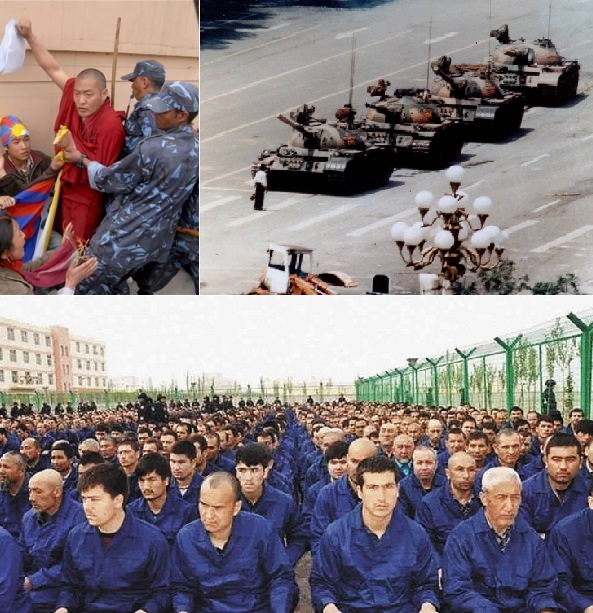Recently, The Diplomat has published an article commenting on the speech delivered by China at the 46th Session of the United Nations Human Rights Council held on February 22 of this year.
Specifically, China’s Foreign Minister Wang Yi delivered a speech at the aforementioned Council Session. It was the first time that a Chinese government official addressed the main UN Human Rights body, and the speech, according to the author, contained important clues about Beijing’s attempt to remake the very concept of human rights to better adapt it to the Party. Chinese Communist (CCP).
The article states that the CCP has been accused of large-scale human rights abuses since the founding of the People’s Republic in 1949. From the attacks against businessmen and intellectuals in its early days, to the repression in Tibet in 1959 and the bloodshed of the Cultural Revolution. Political persecution has been a hallmark of the Party regime, with the 1989 military crackdown on protesters in Tiananmen Square perhaps the most famous example. Today, the article notes, the biggest blemish on Beijing’s human rights record is the ongoing campaign against Turkish Muslim groups, particularly native Iugures, in China’s Xinjiang region. This latest atrocity, which includes mass arrests, forced labor and constant surveillance, led the United States to accuse China of outright genocide.
The article then goes on to explain that Wang’s speech devoted much of it to defending China’s policies toward Xinjiang and Hong Kong, where a new National Security Law went into effect last year. However, the author’s attention is drawn to the argumentative style used in the speech, as she points out that she sought to change the definition of “human rights” to one more appropriate to the force of the CCP, focusing above all on economic development and security.
Thus, the Chinese Minister’s proposal postulates that the fundamental pursuit of human rights “centered on people” is the “sense of benefit, happiness and security of them.” In this formulation, economic prosperity tops the list, the nebulous concept of “happiness” is intended to replace more concrete markers such as racial and gender equality or freedom of religion, and national security is elevated to a human right priority. The numbering of human rights presented includes the concepts of peace, development, equity, justice, democracy and freedom. The order here, with peace and economic development leading the way, and democracy and freedom afterward, is particularly noteworthy, as Wang claimed that China eradicated extreme poverty in 2020, seeing it as a “milestone in our achievement of protecting human rights.” .
Then, it is explained that, regarding human rights and security, China considers that its actions in Xinjiang are a justified response to terrorist activity. Indeed, the Chinese authorities respond to allegations of rights violations, pointing out that there have been no terrorist attacks in Xinjiang since 2017, and that providing this human right to security is worth whatever cost it may incur in the “Western sense of rights. human rights ”, for example, freedom of expression, religion and association.
Finally, the author believes that, by promoting a redefinition of human rights to include economic and physical security, China essentially hopes to change the parameters to enter to compete with liberal democracies (and particularly with the United States) for the high level moral protection of human rights. In relation to this, the article highlights that, Wang Yi said in his speech: “Human rights are not a monopoly of a small number of countries, and even less should they be used as a tool to pressure other countries and meddle in their internal affairs. ”. It was even more direct at one point, since Chine wants the Council to “reject interference in the internal affairs of other countries and the double standard under the pretext of protecting human rights.”
See full text of speech.
–


